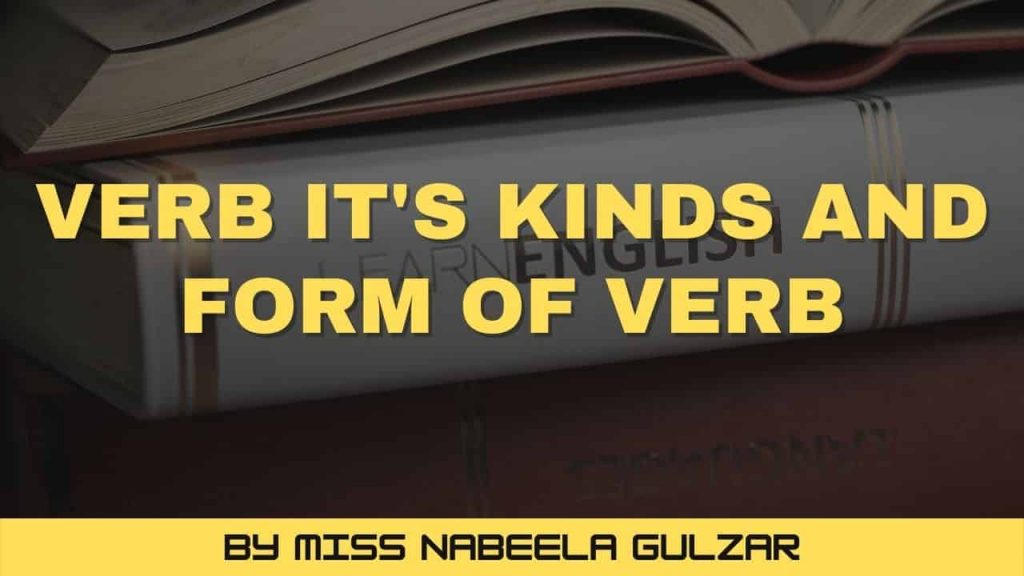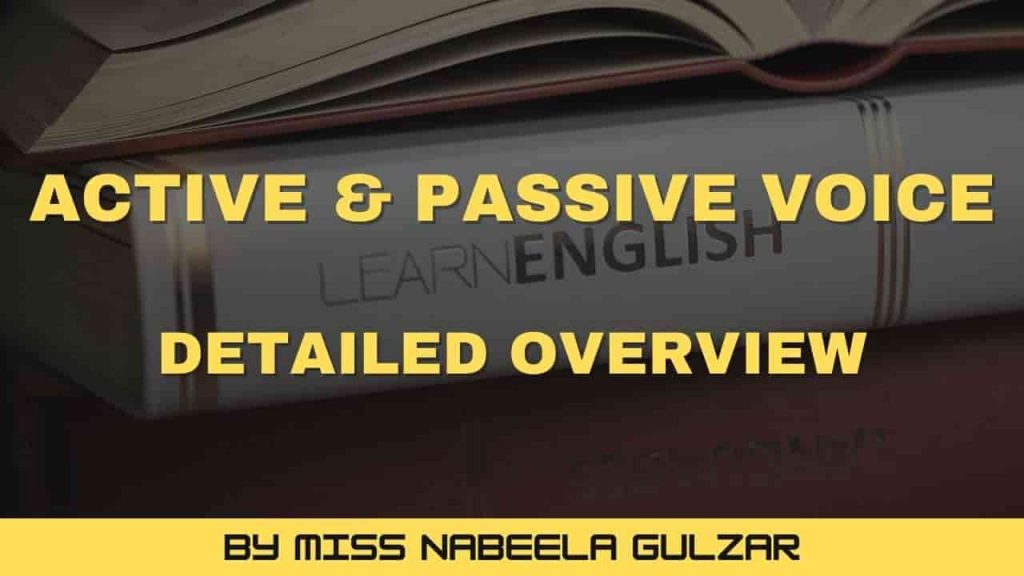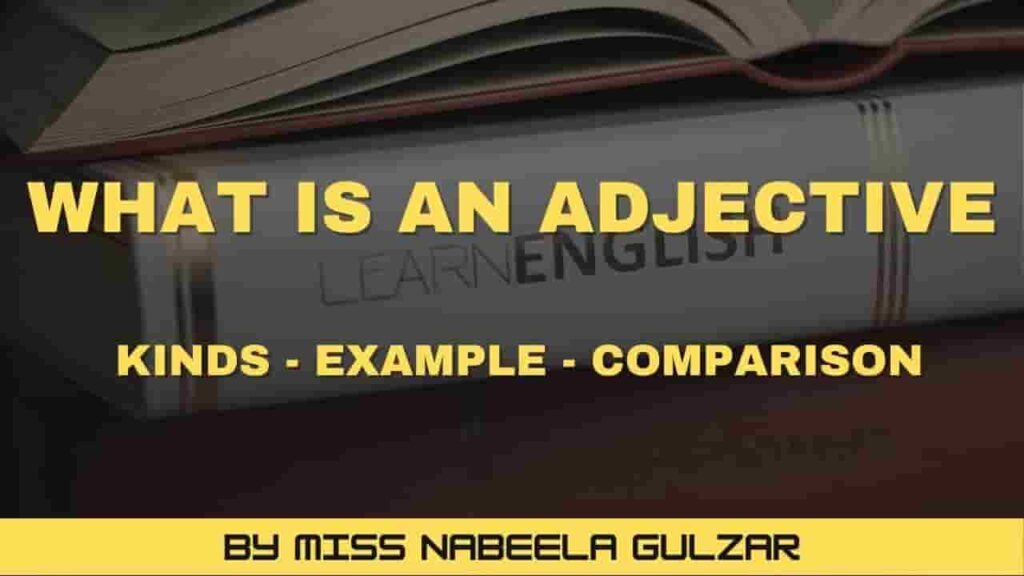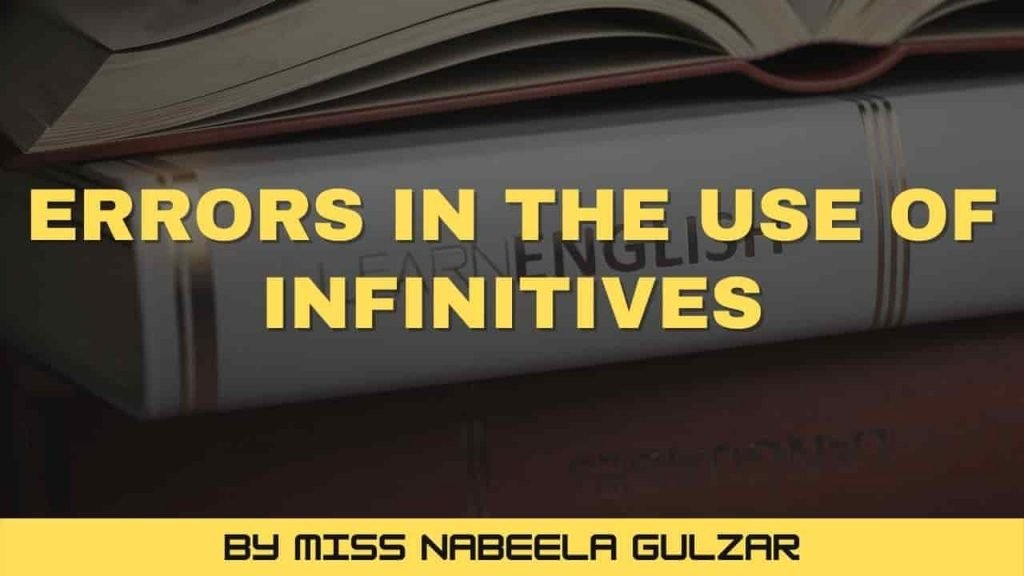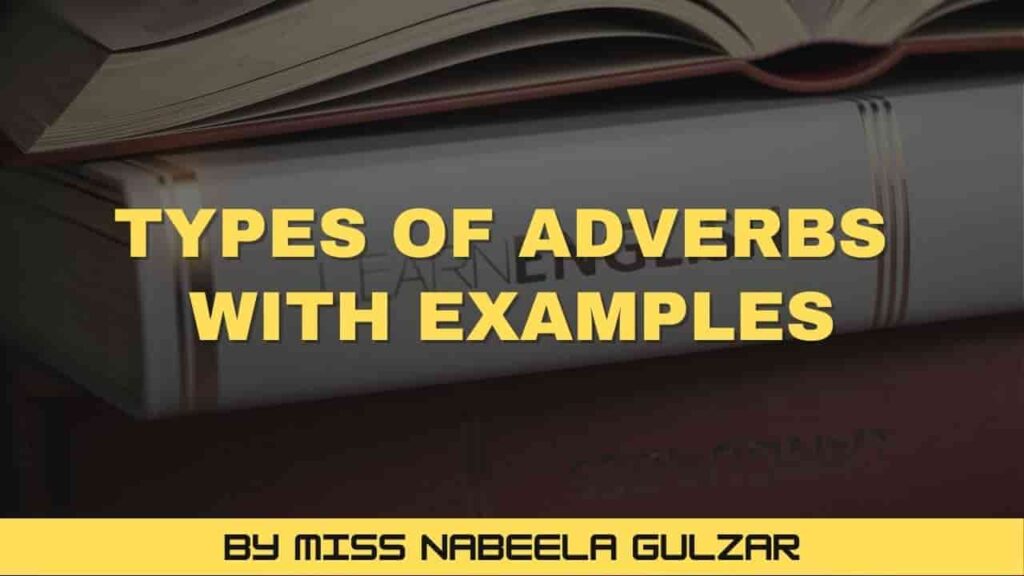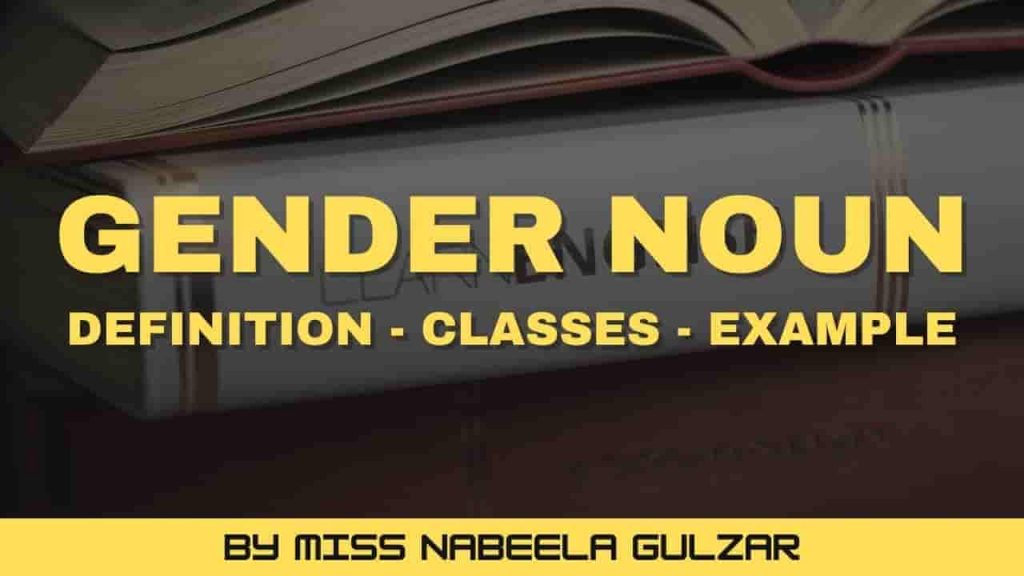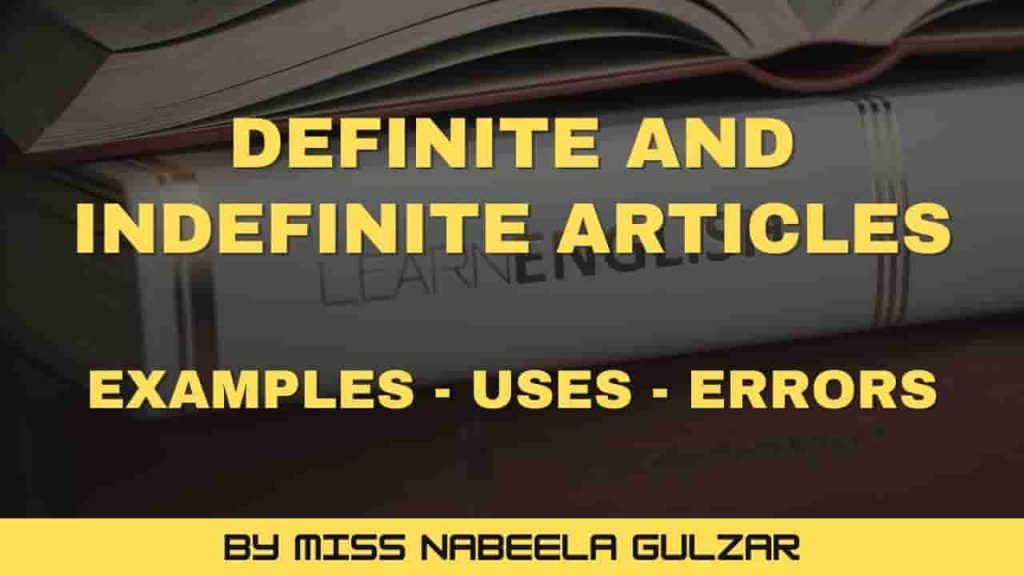Verb its Kinds and Form of Verb
Definition:
A word that expresses an action of a noun is called a verb. It tells something about a person, place, thing. e.g.
- We learn grammar.
- I go to school.
- The sun shines.
Kinds of Verb
There are two major kinds of the verb.
1. Principal Verbs
2. Auxiliary Verbs
1. Principal Verbs
A verb which expresses the action of a noun or pronoun is called “Principal verbs“. It has three forms.
| Present | Past | Past participle |
| Act | Acted | Acted |
| Arise | Arose | Arisen |
| Buy | Bought | Bought |
There are two kinds of principal verbs.
a. Transitive verb
A verb that describes an action which passes over from the subject to an object is called a transitive verb. e.g.
- The players hit the ball.
b. Intransitive verb
A verb that describes an action which doesn’t passes over to an object, or which expresses a state or being; as:
- The lady laughs loudly. (action)
- The baby sleeps. (state)
- There is nothing on the plate. (being)
Subject Verb Agreement
Its means that verb must agree with its subject, i.e. a singular subject always takes a singular verb and a plural subject takes a plural verb; as:
- Two and two make four. (plural subject and plural verb)
- She eats Mango. (singular subject and singular verb)
2. Auxiliary or Helping Verbs
The verb which is used for making tense or making the sentence negative or interrogative is called an auxiliary or helping verb. This verb is used with the principal or helping verb. e.g.
- I can drive the car.
- Do I tell a lie?
- He is a student.
There are the following auxiliaries or helping verbs:
To be (is, am, are, was, were, being been), has, have, had, do, does, did, shall, will, would, should, can, could, may, might, must, ought.
Mood
A simple use of a verb is to make a statement of fact or ask a question; as:
- I like mangoes very much.
- Who abused you?
But a verb may also be used to express a command or supposition; as:
- Do it now.
- If I go outside, I’ll switch off the light.
Mood is the mode or manner, in which the action described by the verb is represented. There are the following three moods in English.
1. Indicative Mood
This mood is used to make a statement of fact or to ask a question or to express supposition; as:
- Zafar writes neatly.
- Are you well?
- I’ll stay, if it rains.
2. Imperative Mood
This mood expresses a command, an exhortation, an entreaty or prayers; as:
- Open the door.
- Be steady.
- Have mercy upon us.
3. Subjunctive Mood
This mood expresses wish, hope, fear, doubt, condition. as:
- I wish I were a millionaire.
- God bless you.
- If I go outside, I shall switch off the light.
Conjugation of Verbs
1. Irregular Forms
Regular verbs are made by adding -ed at the end of root verbs, but irregular verbs do not follow this pattern.
Here is a list of irregular verbs:
| Present | Past | Past Participle |
| Awake | Awoke | Awoken |
| Beat | beat | beaten |
| Become | Became | Become |
| Begin | Began | Begun |
| Bend | Bent | Bent |
| Bind | Bound | Bound |
| Bite | Bit | Bitten |
| Bleed | Bled | Bled |
| Bring | Brought | Brought |
| Burn | Burnt | Burnt |
| Buy | Bought | Bought |
| Catch | Caught | Caught |
| Choose | Chose | Chosen |
| Cling | Clung | Clung |
| Come | Came | Come |
| Deal | Dealt | Dealt |
| Dig | Dug | Dug |
| Do | Did | Done |
| Draw | Drew | Drawn |
| Drink | Drank | Drunk |
| Drive | Drove | Driven |
| Eat | Ate | Eaten |
| Fall | Fell | Fallen |
| Feed | Fed | Fed |
| Feel | Felt | Felt |
| Fing | Found | Found |
| Flee | Fled | Fled |
| Fly | Flew | Flown |
| Forget | Forgot | Forgotten |
| Freeze | Froze | Frozen |
| Get | Got | Got, Gotten |
| Go | Went | Gone |
| Give | Gave | Given |
| Grind | Ground | Ground |
| Grow | Grew | Grown |
| Hold | Held | Held |
| Hang | Hung | Hung |
| Lead | Led | Led |
| Lend | Lent | Lent |
| Lie | Lay | Lain |
| Lose | Lost | Lost |
| Make | Made | Made |
| Mistake | Mistook | Mistaken |
| Ride | Rode | Ridden |
| Ring | Rung | Rung |
| Rise | Rose | Risen |
| Run | Ran | Run |
| See | Saw | Seen |
| Sell | Sold | Sold |
| Shake | Shook | Shaken |
| Shine | Shone | Shone |
| Sing | Sang | Sung |
| Sink | Sank | Sunk |
| Sit | Sat | Sat |
| Speak | Spoke | Spoken |
| Spring | Sprang | Sprung |
| Stand | Stood | Stood |
| Steal | Stole | Stolen |
| Strike | Struck | Struck |
| Swear | Swore | Sworn |
| Take | Took | Taken |
| Tear | Torn | Tore |
| Tell | Told | Told |
| Think | Thought | Thought |
| Throw | Threw | Thrown |
| Wear | Wore | Worn |
| Weep | Wept | Wept |
| Wind | Wound | Wound |
| Write | Wrote | Written |
2. Regular Forms
Regular verbs are formed by adding -ed at the end of a root verb to make it past and past participle. Here is a complete list of regular verbs.
| Present | Past | Past Participle |
| Absent | Absented | Absented |
| Abuse | Abused | Abused |
| Accept | Accepted | Accepted |
| Accuse | Accused | Accused |
| Act | Acted | Acted |
| Add | Added | Added |
| Admire | Admired | Admired |
| Admit | Admitted | Admitted |
| Adopt | Adopted | Adopted |
| Advise | Advised | Advised |
| Agree | Agreed | Agreed |
| Aid | Aided | Aided |
| Allow | Allowed | Allowed |
| Answer | Answered | Answered |
| Appear | Appeared | Appeared |
| Apply | Applied | Applied |
| Arrange | Arranged | Arranged |
| Arrest | Arrested | Arrested |
| Ask | Asked | Asked |
| Attack | Attacked | Attacked |
| Attempt | Attempted | Attempted |
| Bake | Baked | Baked |
| Beg | Begged | Begged |
| Behave | Behaved | Behaved |
| Believe | Believed | Believed |
| Belong | Belonged | Belonged |
| Blame | Blamed | Blamed |
| Borrow | Borrowed | Borrowed |
| Bury | Buried | Buried |
| Call | Called | Called |
| Cause | Caused | Caused |
| Chase | Chased | Chased |
| Claim | Claimed | Claimed |
| Clap | Clapped | Clapped |
| Climb | Climbed | Climbed |
| Connect | Connected | Connected |
| Consist | Consisted | Consisted |
| Copy | Copied | Copied |
| Creat | Created | Created |
| Crush | Crushed | Crushed |
| Cure | Cured | Cured |
| Dare | Dared | Dared |
| Deceive | Deceived | Deceived |
| Declare | Declared | Declared |
| Defeat | Defeated | Defeated |
| Depend | Depended | Depended |
| Describe | Described | Described |
| Destroy | Destroyed | Destroyed |
| Disappear | Disappeared | Disappeared |
| Disappoint | Disappointed | Disappointed |
| Discover | Discovered | Discovered |
| Discuss | Discussed | Discussed |
| Dive | Dived | Dived |
| Drag | Dragged | Dragged |
| Drown | Drowned | Drowned |
| Earn | Earned | Earned |
| Educat | Educated | Educated |
| Employ | Employed | Employed |
| Enable | Enabled | Enabled |
| Engage | Engaged | Engaged |
| Enlarge | Enlarged | Enlarged |
| Enter | Entered | Entered |
| Escape | Escaped | Escaped |
| Excite | Excited | Excited |
| Excuse | Excused | Excused |
| Fade | Faded | Faded |
| Finish | Finished | Finished |
| Flash | Flashed | Flashed |
| Flatter | Flattered | Flattered |
| Fold | Folded | Folded |
| Found | Founded | Founded |
| Gamble | Gambled | Gambled |
| Gather | Gathered | Gathered |
| Graze | Grazed | Grazed |
| Greet | Greeted | Greeted |
| Grip | Griped | Griped |
| Guess | Guessed | Guessed |
| Guide | Guided | Guided |
| Hammer | Hammered | Hammered |
| Hang | Hanged | Hanged |
| Harm | Harmed | Harmed |
| Harvest | Harvested | Harvested |
| Hatch | Hatched | Hatched |
| Hate | Hatred | Hatred |
| Heal | Healed | Healed |
| Heap | Heaped | Heaped |
| Hire | Hired | Hired |
| Hunt | Hunted | Hunted |
| Import | Imported | Imported |
| Impress | Impressed | Impressed |
| Improve | Improved | Improved |
| Increase | Increased | Increased |
| Include | Included | Included |
| Inform | Informed | Informed |
| Inherit | Inherited | Inherited |
| Injure | Injured | Injured |
| Inquire | Inquired | Inquired |
| Inspect | Inspected | Inspected |
| Insist | Insisted | Insisted |
| Invent | Invented | Invented |
| Invite | Invited | Invited |
| Involve | Involved | Involved |
| Irrigate | Irrigated | Irrigated |
| Joke | Joked | Joked |
| Join | Joined | Joined |
| Kick | Kicked | Kicked |
| Knit | Knitted | Knitted |
| Knock | Knocked | Knocked |
| Lay | Laid | Laid |
| Level | Levelled | Levelled |
| Listen | Listened | Listened |
| Lock | Locked | Locked |
| Loose | Loosed | Loosed |
| March | Marched | Marched |
| Measure | Measured | Measured |
| Melt | Melted | Melted |
| Migrate | Migrated | Migrated |
| Miss | Missed | Missed |
| Mix | Mixed | Mixed |
| Motion | Motioned | Motioned |
| Mount | Mounted | Mounted |
| Mourn | Mourned | Mourned |
| Note | Noted | Noted |
| Obey | Obeyed | Obeyed |
| Object | Objected | Objected |
| Occupy | Occupied | Occupied |
| Offer | Offered | Offered |
| Operate | Operated | Operated |
| Oppose | Opposed | Opposed |
| Organize | Organized | Organized |
| Own | Owned | Owned |
| Pack | Packed | Packed |
| Pardon | Pardoned | Pardoned |
| Participate | Participated | Participated |
| Pass | Passed | Passed |
| Pay | Payed | Payed |
| Perform | Performed | Performed |
| Permit | Permitted | Permitted |
| Preach | Preached | Preached |
| Pretend | Pretended | Pretended |
| Printed | Printed | |
| Progress | Progressed | Progressed |
| Prohibit | Prohibited | Prohibited |
| Protect | Protected | Protected |
| Protest | Protested | Protested |
| Publish | Published | Published |
| Punish | Punished | Punished |
| Quarrell | Quarrelled | Quarrelled |
| Question | Questioned | Questioned |
| Qualify | Qualified | Qualified |
| Recognize | Recognized | Recognized |
| Recover | Recovered | Recovered |
| Reduce | Reduced | Reduced |
| Refuse | Refused | Refused |
| Reject | Rejected | Rejected |
| Remember | Remembered | Remembered |
| Remind | Reminded | Reminded |
| Remove | Removed | Removed |
| Represent | Represented | Represented |
| Rescue | Rescued | Rescued |
| Resign | Resigned | Resigned |
| Roar | Roared | Roared |
| Rob | Robed | Robed |
| Satisfy | Satisfied | Satisfied |
| Scream | Screamed | Screamed |
| Shiver | Shivered | Shivered |
| Stock | Stocked | Stocked |
| Shout | Shouted | Shouted |
| Talk | Talked | Talked |
| Test | Tested | Tested |
| Transfer | Transferred | Transferred |
| Transport | Transported | Transported |
| Try | Tried | Tried |
| Tremble | Trembled | Trembled |
| Trouble | Troubled | Troubled |
| Torture | Tortured | Tortured |
| Unite | United | United |
| Urge | Urged | Urged |
| Vacate | Vacated | Vacated |
| Vomit | Vomited | Vomited |
| Vote | Voted | Voted |
| Wander | Wandered | Wandered |
| Want | Wanted | Wanted |
| Waste | Wasted | Wasted |
| Watch | Watched | Watched |
Note: The following verbs are the same in their respective forms.
| Present | Past | Past Perfect |
| Bet | Bet | Bet |
| Burst | Burst | Burst |
| Cast | Cast | Cast |
| Cost | Cost | Cost |
| Cut | Cut | Cut |
| Hit | Hit | Hit |
| Hurt | Hurt | Hurt |
| Let | Let | Let |
| Put | Put | Put |
| Set | Set | Set |
| Shed | Shed | Shed |
| Shut | Shut | Shut |
| Spread | Spread | Spread |
| Sweat | Sweat | Sweat |
Note: The following are weak forms of verbs, these may be in regular or irregular forms of verbs.
| Present | Past | Past Participle |
| Bend | Bent | Bent |
| Bite | Bit | Bit |
| Blead | Bled | Bled |
| Breed | Bred | Bred |
| Bring | Brought | Brought |
| Burn | Burnt | Burnt |
| Buy | bought | bought |
| Catch | Caught | Caught |
| Clothe | Clothed | Clothed |
| Creep | Crept | Crept |
| Cure | Cured | Cured |
| Dare | Dared | Dared |
| Deal | Dealt | Dealt |
| Dip | Dipped | Dipped |
| Dream | Dreamed | Dreamed |
| Fall | Fell | Fallen |
| Feed | Fed | Fed |
| Feel | Felt | Felt |
| Flee | Fled | Fled |
| Grid | girded/ Girt | girded/ Girt |
| Has/Have | Had | Had |
| Hear | Heard | Heard |
| Keep | Kept | Kept |
| Kneel | Knelt | Knelt |
| Lay | Laid | Laid |
| Lead | Led | Led |
| Leap | Leapt | Leapt |
| Learn | Learnt | Learnt |
| Leave | Left | Left |
| Lick | Licked | Licked |
| Lie | Lied | Lied |
| Light | Lit/ lighted | Lit/ lighted |
| Like | liked | liked |
| Load | Loaded | Loaded |
| Lose | Lost | Lost |
| Make | Made | Made |
| Mean | Meant | Meant |
| Melt | Melted | Melted |
| Pay | Paid | Paid |
| Pick | Picked | Picked |
| Pluck | Plucked | Plucked |
| Pray | Prayed | Prayed |
| Prove | Proved | Proved |
| Praise | Praised | Praised |
| Say | Said | Said |
| Seek | Sought | Sought |
| Sell | Sold | Sold |
| Send | Sent | Sent |
| Sew | Sewed | Sewed |
| Show | Showed | Showed |
| Sleep | Slept | Slept |
| Smell | Smelt | Smelt |
| Sow | Sowed | Sowed |
| Spend | Spent | Spent |
| Spill | Spilt | Spilt |
| Teach | Taught | Taught |
| Tell | Told | Told |
| Trust | Trusted | Trusted |
| Treat | Treated | Treated |
| Work | Worked | Worked |
| Weep | Wept | Wept |
Some Common Verbs and their Nouns
| Verb | Noun |
| Achieve | Achievement |
| Add | Addition |
| Advise | Advisor |
| Admit | Admission |
| Agree | Agreement |
| Allot | Allotment |
| Apply | Application |
| Appoint | Appointment |
| Approve | Approvement |
| Arrange | Arrangement |
| Arrive | Arrival |
| Astonish | Astonishment |
| Bathe | Bath |
| Behave | Behavior |
| Begin | Beginning |
| Bear | Birth |
| Bless | Blessing |
| Bleed | Blood |
| Busy | Business |
| Burry | Burial |
| Choose | Choice |
| Clothe | Cloth |
| Collect | Collection |
| Connect | Connection |
| Develop | Development |
| Destroy | Destruction |
| Die | Death |
| Dine | Dinner |
| Divide | Division |
| Drip | Drop |
| Drive | Driver |
| Elect | Election |
| Employ | Employment |
| Enjoy | Enjoyment |
| Feed | Food |
| Flow | Flood |
| Grieve | Grief |
| Grow | Growth |
| Invite | Invitation |
| Know | Knowledge |
| Lose | Loss |
| Live | Life |
| Laugh | Laughter |
| Move | Movement |
| Meet | Meeting |
| Marry | Marriage |
| Object | Objection |
| Punish | Punishment |
| Propose | Proposal |
| Prove | Proof |
| Remove | Removal |
| Run | Race |
| Sit | Seat |
| Sing | Song |
| Solve | Solution |
| Speak | Speech |
| Strengthen | Strength |
| Strike | Stroke |
| Succeed | Success |
| Tell | Tale |
| Think | Thought |
| Translate | translation |
Tenses
A verb may refer to:
1. Present Time
2. Past Time
3. Future Time
4. A verb that denotes the present time is said to be in the Present Tense.
5. A verb that denotes the past time is said to be in the Past Tense.
6. A verb that denotes the future time is said to be in the Future Tense.
If you want to excel in Tenses then check out the ultimate guide on English Tenses by Miss Nabila Gulzar
Modal Verbs/ Modal Auxiliaries
Modal verbs are helping verbs used with other verbs to help them convey particular meanings. They exist only in association with other verbs. All these should be used with the root form of the main verb, whether to indicate the simple present or the simple past tense.
| Modals | Functions | Examples |
| Can | Ability / inability/ permission | I can see the beach from here. You cannot do it. Can I talk to you? |
| Could | Capability/ Permission/ request | You could solve this problem. Could I borrow your bicycle? Could you please explain it? |
| May | Permission/ prayer/ possibility/ wish | May I ask you something? May you live long. It may cause food poisoning. May Allah bless you with health. |
| Might | Permission/ Possibility/ Suggestion | Might I see the patient now? I thought it might rain now. She might go to the party. |
| Must | determination/ necessity/ obligation/ prohibition | We must leave it now. She must take her medicine. You must help each other. She must not spend too much money. |
| Ought to | desirability/ moral obligation/ suggestion | Now I ought to go for their help. She ought to knock before entering. They ought to open the box. |
| Used to | Past habit | They used to go to the park daily. I used to play badminton. |
| Need | necessity/ obligation | I need not explain it. I hardly need to tell him. |
| Dare | bravery/courage | The old man dared to kill the lion. How dare you do this. |
| shall | consent/ command/ futurity/ promise/ threat | Shall I buy this one? You shall leave the room at once. We shall sing a song. We shall be rewarded. You shall be punished, if you are late. |
| Will | assertion/ determination/ futurity/ habit/ request | I will help you; don’t worry. I will do it myself. She will cook the food. You will take nothing but a burger. Will you please show me the way out? |
| Should | desirability/ obligation/ past obligation/ suggestion | I should work hard. You should obey your elders. He should have to help me in trouble. Should she feel nervous, encourage her. |
| Would | condition/ desirability/ habit/ request | If you worked hard, you would pass. Would that you were here! You would walk daily. Would you play the song again? |
Finite and Non-Finite Verbs
When a verb is limited by a person and number, it is called a “Finite Verb” such as:
- I went to the store.
- He took the book that was on the table.
when a verb is not limited by a person and number, it is called “Non Finite Verb” such as:
- To err is human.
- She refused to obey the orders.
The finite verb forms are as follows:
1. Participles
2. Gerund
3. Infinitives
1. Participles
A word that is used as an adjective to modify nouns and pronouns is called “participle”.
(a) Present Participle
All present participles end in -ing:
- The laughing lady
- The falling leaves
- The stinging remark
(b) Past Participle
All ‘past participles’ of the regular verbs end in-ed:
- The tired dancer
- The injured
- The cracked vase
However regular verbs have various past participle endings (such as; thrown, ridden, eaten, built, bought and gone).
(c) Perfect Participle
The perfect participles are formed as :having + past participle.
- Having learnt the lesson
- Having gained knowledge
Learn The Uses and Errors of Participles
2. Gerund
A word which ends in-ing, and has the function of a noun is a ‘Gerund’.
Examples:
- Painting is good fun.
- I like painting.
- My favorite hobby is painting.
In these sentences painting is doing the work of a noun forming the subject, object and complement.
The Use of Gerund
A gerund being a verb-noun may be used:
Subject of a verb; as:
Swimming is my favorite hobby.
Object of a transitive verb; as:
I like reading books.
Object of a preposition; as:
I am tired of working.
Complement of a verb; as:
What she likes best is painting.
As a compound noun:
A flying airplane.
Learn The Uses and Errors of Gerund
3. Infinitives
The infinitive verb is a kind of a noun, but it acts like the base of a verb.
Examples:
- Birds love to sing.
- Many people desire to collect money quickly.
Note: The word “to” is used with the infinitive. However “to” is not used with certain words such as: bid, let, need, dare, see, hear, etc.
The Use of Infinitives
To qualify a verb: as;
We came to live here.
To qualify an object: as;
Dates are good to eat.
To qualify a noun: as;
It is not the time to sleep.
To qualify a sentence: as;
To tell the lie.
He often forgot his promise.
Learn The Uses and Errors of Infinitives
Hopefully, your concept about Verb its Kinds and Form of Verb is clear now, This lecture is part of the whole series of English Grammar by Miss Nabila Gulzar, For Other Lectures Click Here also We have an Essay on every topic, Check the complete list here. If you are Studying in Matric Free Video Lectures of Maths, Physics and English are here, and we have got you covered for I.COM Business Maths also.

